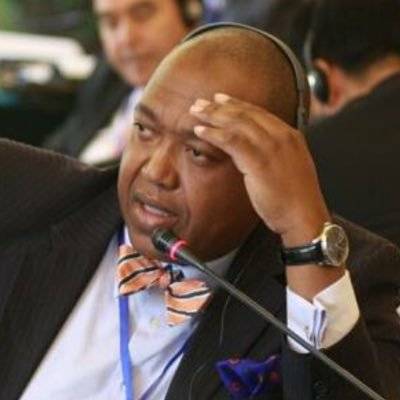The former administration of Donald Trump has widened the political divide in the US, leaving behind unprecedented political challenges for the future of the country. Trump might have lost the elections, but he will not disappear from US national politics. His shadow will continue to linger heavily over the US body politic. Consequently, a number of members of the Republican Party (GOP) have opted to bet their future political ambitions and prospects on Trump. Trump has managed to establish a strong political following, before and after he assumed office. Most are attracted to him because of his right-wing populist politics, anti-migration stance and white supremacist rhetoric.
Rand Corporation tested several queries to clearly divide Trump’s support from his rivals. For example, they found that Trump crushes Ted Cruz among voters who both strongly believe that “immigrants threaten American customs and values.” The proliferations of Trump’s politics have negatively impacted on national cohesion in the US. The embracing by many of the “alternative facts” phenomenon led to a clumsy transfer of power in recent elections. Many Trump followers believe that Trump won the elections, notwithstanding the overwhelming evidence to the contrary.
“Alternative facts” is a term coined by White House counsellor Kelly-Anne Conway, during a Meet the Press interview in January 2017 to defend Press Secretary Sean Spicer’s false assertion that Trump drew the largest-ever inauguration crowd. Together, these formed the original sin of the Trump presidency, culminating in his coronavirus and election denialism.
READ: Biden could end the war in Yemen
Furthermore, within the GOP political elite and beyond, there is a belief that Trump might contest future presidential elections. This has led to most GOP politicians siding with Trump’s ludicrous assertions. What most thought was the last straw of Trump’s unquestioning support by the majority of the GOP proved to be the opposite on 6 January, 2012. The rally organised by Trump and his supporters in Washington culminated in a riot, which led to the storming of Capitol Hill.
A day that began with thousands of Trump’s supporters in Washington for demonstrations turned violent, as many in attendance saw Wednesday as a last stand for Trump, because Congress was set to confirm that President-elect Joe Biden won the election. Protestors bridged the security barriers of Capitol Hill, marched inside the building chanting intents to hurt, specifically, Speaker of the House Nancy Pelosi and Vice President Mike Pence. The rioters also vandalised and stole property inside the building. “It was ugly and one would have expected overwhelming condemnation of Trump, instead, the majority of the GOP politicians stood by their man Donald Trump,” said one member of the Senate.
![Trump detroying the Middle East with Saudi Arabia back-up - Cartoon [Sabaaneh/MiddleEastMonitor]](https://i0.wp.com/www.middleeastmonitor.com/wp-content/uploads/2017/11/16-11-2017.jpg?resize=920%2C571&ssl=1)
Trump detroying the Middle East with Saudi Arabia back-up – Cartoon [Sabaaneh/MiddleEastMonitor]
Through 2019, the Saudi-led coalition continued a military campaign against Houthi rebel groups in Yemen, including scores of unlawful airstrikes, killing and wounding thousands of civilians. In 2018, Saudi Arabia admitted to murdering the Washington Post’s journalist Jamal Khashoggi inside its consulate in Istanbul, Turkey. However, what is more worrying than the political loyalty it enjoys in the Gulf, is the close personal relationship Trump and his son-in-law, senior White House adviser Jared Kushner, share with Bin Salman and Crown Prince Mohammed Bin Zayed of the UAE.
The relationship is said to extend beyond politics. The kingdom and its de facto leader Bin Salman have enjoyed a very close relationship with the Trump administration. Throughout his presidency, Trump has shown almost unwavering support for Riyadh, over the objections of some members of Congress who have not been nearly as willing to turn a blind eye to Saudi Arabia’s abysmal human rights record. MBS is also reportedly very chummy with Kushner.
READ: It’s a mistake to believe that Biden will be a friend of Palestine
Given the warm relationship with Trump, it can be concluded that the Biden administration will struggle to establish trust with Bin Salman, and indeed Bin Zayed. Saudi Arabia and the UAE dominate machinations within the Gulf Cooperation Council (GCC); they are the kingpins. What guarantees will they both provide to Biden that they won’t relay crucial information to Trump and co., given their future political ambitions? Trump has not written out the possibility of running for a second term in 2024.
Trump’s hostile relationship with President Biden has become untenable. He even refused to attend Biden’s inauguration in Capitol Hill on 20 January, leaving his former vice president to do the damage control. This is this reality that places Qatar in a significant position in future GCC-US relations. Qatar could become an essential political conduit between the US and the GCC, henceforth. Qatar has been mostly sidelined during the four years of Trump’s presidency. To an extent, this shielded it from Trump’s influence. Instead, Trump concentrated on building relationships with the UAE and Saudi Arabia.
Moreover, Qatar is regarded as a promoter of freedom of expression and democracy, having refused to shut down Al Jazeera after the insistence of the blockading nations led by Saudi Arabia, Bahrain, UAE and Egypt. Biden has vowed to promote democracy and to work with those supporting democracy. Qatar is perhaps the most qualified candidate in the region in this regard.
Qatar could also play a key role in establishing engagement between Iran and Turkey with the US. Over the past three years of the blockade, Qatar managed to develop strong relations with both Iran and Turkey. It could be deduced therefore, that this is Qatar’s moment in the GCC. Many are hopeful that Qatar’s involvement will change the image of the GCC and bring new political opportunities to the region.
The views expressed in this article belong to the author and do not necessarily reflect the editorial policy of Middle East Monitor.

![Emir of Qatar Sheikh Tamim Bin Hamad al-Thani in Alula, Saudi Arabia on 5 January 2021 [Royal Council of Saudi Arabia/Anadolu Agency]](https://i0.wp.com/www.middleeastmonitor.com/wp-content/uploads/2021/01/20210105_2_46200235_61276819.jpg?fit=920%2C613&ssl=1)







